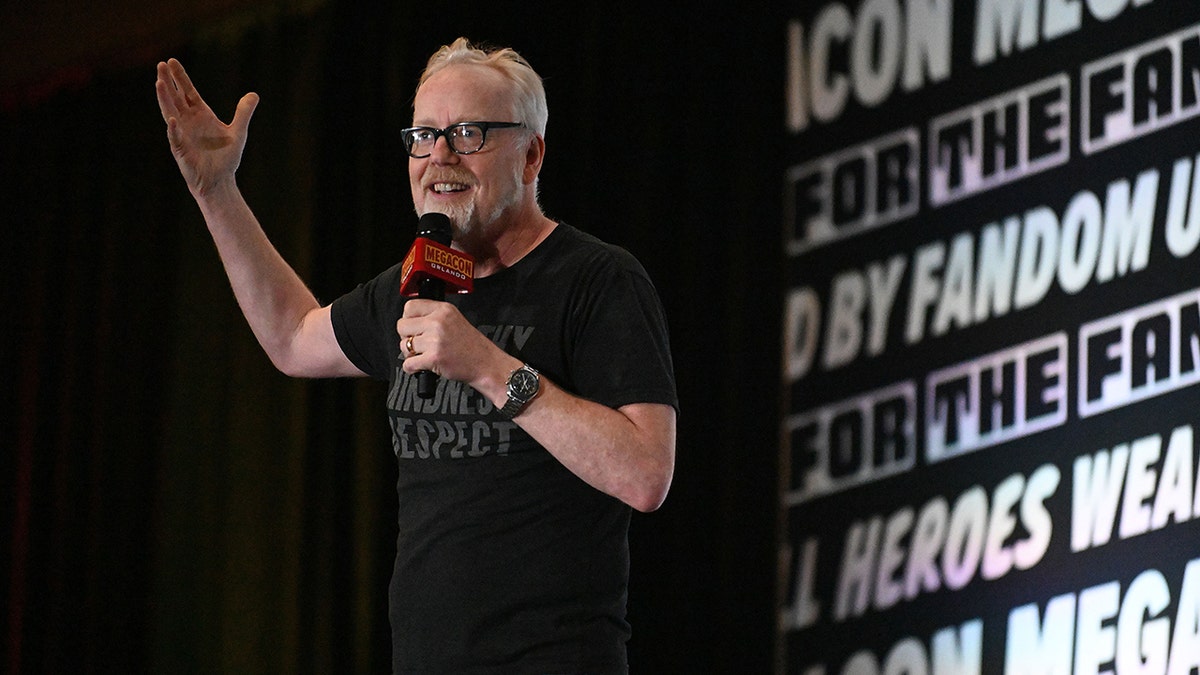Former “MythBusters” star Adam Savage is exploring the science of longevity, asking how lifestyle choices, stress and even sleep affect how long we live.
Savage, now a YouTube creator and head of the channel Tested, has partnered with health technology company Medtronic to engage in discussions about longevity. While not a researcher himself, he has taken a deep dive into scientific insights from experts and reflected on his own experiences.
“Longevity has always been a fascination for me,” Savage told Fox News Digital in an exclusive interview.
“I mean, who doesn’t want to know how to live better and maybe even longer? But the real question is what actually works?”
HUMANOID ROBOT STUNS WITH PERFECT SIDE-FLIP ACROBATICS

Adam Savage speaks at MegaCon Orlando 2025 at the Orange County Convention Center Feb. 8, 2025, in Orlando, Fla. (Gerardo Mora/Getty Images)
He credits his “MythBusters” experience with fueling his passion for scientific exploration.
“Making that show legitimized the practice of science and engineering to me,” Savage said. “It made me realize how much of our world can be tested, questioned and improved through experimentation.”
Through his discussions with people on the street for Medtronic, Savage has uncovered key lifestyle factors affecting longevity. He noted a cultural shift in what we consider to be old age, highlighting that people today consider themselves “young-ish” for longer.
Savage also pointed to Blue Zones, regions known for long life expectancy, but questioned whether longevity there stems simply from location or cultural practices.
“We assume people in these areas live longer because of where they are, but what if it’s really just the way they live? That’s the part that fascinates me,” he said.
AI ENABLES PARALYZED MAN TO CONTROL ROBOTIC ARM WITH BRAIN SIGNALS
“There’s no magic secret. It’s a mix of daily habits — what you eat, how you move, how you interact with your community, how you handle stress. All those things matter.”
Savage has taken a personal interest in testing different longevity strategies in his own life. He spoke candidly with Fox News Digital about his journey with intermittent fasting, which helped him lose 25 pounds and eliminate sleep apnea.
“It’s crazy how much of a difference it made,” he said. “I didn’t just lose weight. I felt sharper, I slept better and I stopped snoring. It was like flipping a switch on my health.”
He also reflected on his past smoking habits and what it took to quit.
“I had to admit I wasn’t smoking for enjoyment,” Savage said. “I was just doing it out of habit. Once I realized that, it was easy to quit.”

Medtronic is investigating how science can extend our lives. Savage believes that lifestyle choices and community have been beneficial in his own life. (iStock)
On alcohol, Savage dismissed the idea of a universal approach, arguing that studies conflict. While he personally cut back, he emphasized that people shouldn’t feel guilty about their lifestyle choices.
“I’m a big believer in not feeling guilty about the things that you do to the core, whether it’s smoking, whether it’s watching something dumb or puzzling for 100 hours at a time,” he said. “I don’t care about any of those. We all do these things to sort of bring relaxation and down regulate. I just think that alcohol is an especially poor down regulator in the final analysis.”
Beyond lifestyle choices, medical advancements are playing an increasingly critical role in extending both lifespan and “healthspan,” the years we live without serious disease. Medtronic, which focuses on healthcare technology globally, has developed medical devices designed to manage chronic conditions, improve heart health and advance minimally invasive surgeries.
According to Medtronic, as people live longer, the focus is shifting toward enhancing not just lifespan but quality of life. The company’s latest innovations include artificial intelligence-driven healthcare monitoring, robotic-assisted surgeries and advanced pacemakers, all aimed at improving long-term health outcomes. Savage also spoke about the psychological aspects of aging, emphasizing that mindset and community play a significant role in longevity.
Medtronic claims the first person to live to 150 may already have been born. When asked if there is an upper limit to human life, Savage replied, “I think right now 150 is a very realistic target to be shooting for and to be discussing.
“That’s really what science foreshadowing is,” added Savage. “It’s about asking these questions and seeing, ‘OK, what numbers are unrealistic.’ I think 40 years ago, 150 would have seemed radically unrealistic. Today it seems more realistic, and I think it’s entirely reasonable that, let’s say, by 2040, we may all have a different cultural answer to that question.”

